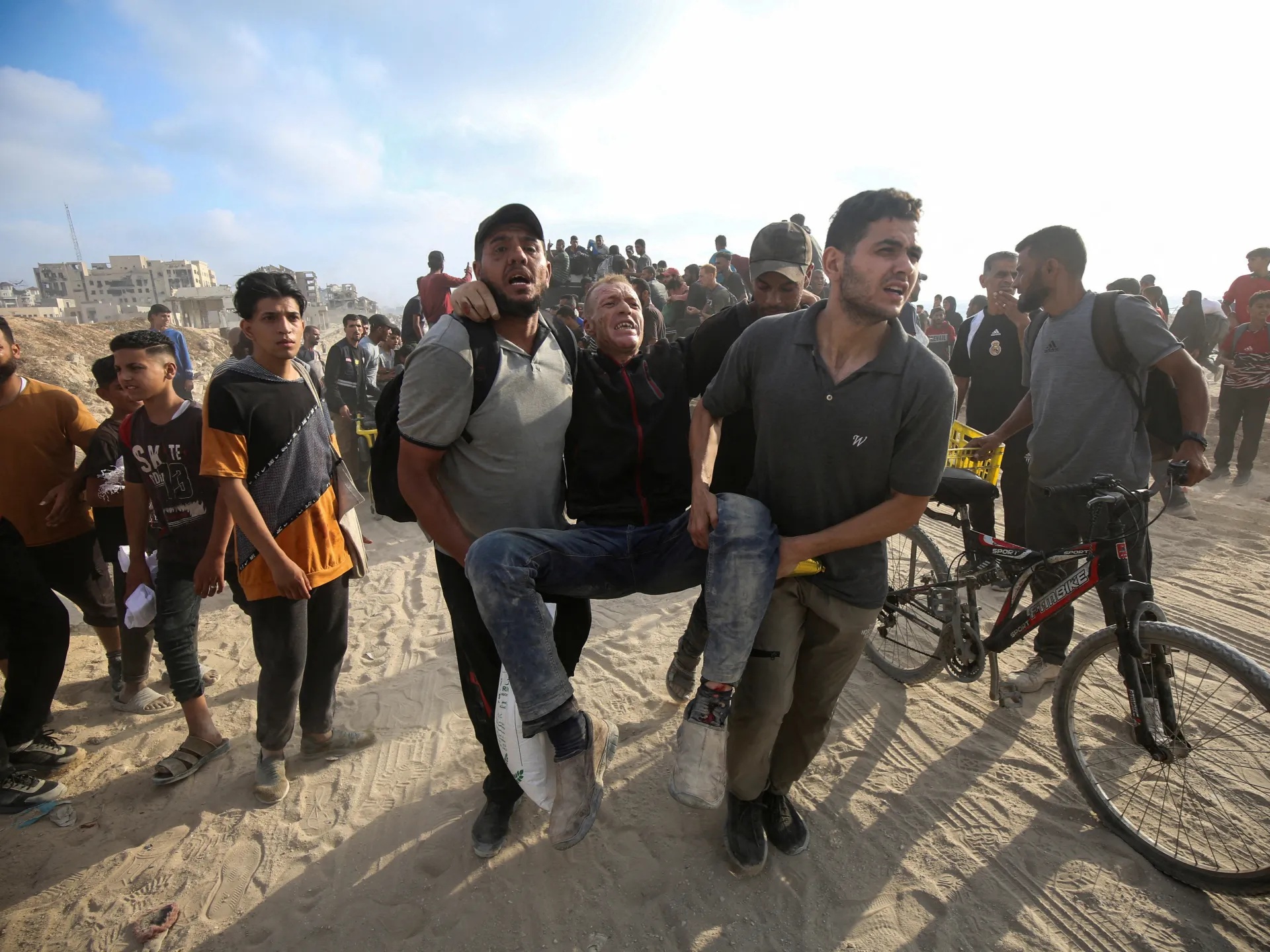At least 43 Palestinians were killed in Gaza on Monday, June 23, 2025, according to medical sources, as Israel continues its sustained military assault on the besieged enclave.
Local media reports that the total Palestinian death toll has now surpassed 56,000 since the war began nearly 20 months ago, with no clear end in sight.
Among the latest victims were at least 20 civilians who were killed while attempting to access desperately needed food at distribution centers.
These centres are reportedly run by the Gaza Humanitarian Foundation (GHF) – a group supported by both the United States and Israel.
The centers have drawn heavy criticism from rights groups and the United Nations, which has accused GHF of “weaponizing aid” and placing already vulnerable populations in harm’s way.
Many of the victims were part of growing crowds risking their lives daily to reach aid distribution points across the Gaza Strip.
With hunger becoming more widespread and famine fears rising, the scenes around these sites have been described by critics as “human slaughterhouses.”
Since GHF began operations on May 27, over 400 Palestinians have been killed and more than 1,000 injured near aid centers.
This raised serious concerns over whether these sites are serving humanitarian needs or contributing to civilian endangerment.
Reporting from Gaza City, Al Jazeera’s Hani Mahmoud described the situation as catastrophic.
“While Israel is engaged in a broader regional confrontation with Iran, its airstrikes continue to target Palestinian civilians, including those in makeshift shelters, tents, and homes,” he said.
“So far today, at least 13 people have been shot dead while trying to get food. In total, 30 have been killed in Israeli attacks since dawn.”
Other parts of the enclave also experienced deadly assaults.
The Wafa News Agency reported an Israeli airstrike that killed four people and injured several others in a residential building in Jabalia, northern Gaza.
In Beit Lahiya, three brothers were killed by Israeli forces while inspecting their war-damaged home in the al-Salateen neighborhood.
In central Gaza, al-Awda Hospital in the Nuseirat refugee camp received the bodies of two individuals killed in Israeli airstrikes along Salah al-Din Street, where crowds had gathered.
The hospital treated at least 35 wounded, 16 of whom were in critical condition and transferred to other medical facilities in the region.
Additional shelling was reported in Shujayea, a neighborhood in eastern Gaza City, as artillery fire targeted densely populated civilian areas.
The cumulative toll now stands at over 56,000 Palestinians killed and at least 131,000 injured since Israel launched its military campaign.
The vast majority of casualties are civilians, including women and children, according to international human rights monitors.
Energy Crisis Worsens Humanitarian Conditions
While the bombs continue to fall, another crisis is worsening — the collapse of energy infrastructure.
In a new report, the Norwegian Refugee Council (NRC) warned that the denial of access to fuel and electricity is placing millions at risk.
“Energy is not a luxury in Gaza — it is a matter of life and death,” said Benedicte Giaever, executive director of NORCAP, a branch of the NRC.
“When families are unable to cook, when hospitals shut down, and when clean water stops flowing, the humanitarian fallout is immediate and severe.”
The Israeli blockade, now in its second year, has cut off nearly all fuel and power sources to the region.
According to the NRC, medical facilities have been especially hard-hit, with crucial equipment — including ventilators, incubators, and dialysis machines — rendered useless without power.
Emergency surgeries are frequently delayed or canceled due to outages.
The NRC called on the international community to treat energy access as a humanitarian priority.
It urged governments and aid agencies to include fuel and electricity infrastructure in relief strategies.
As the conflict grinds on, Gaza’s civilians continue to bear the brunt — enduring not only military assaults, but also hunger and displacement.
They also endure the steady collapse of life-sustaining systems.
International outcry is growing, but on the ground, many fear that without immediate and coordinated global intervention, the situation will deteriorate even further.







